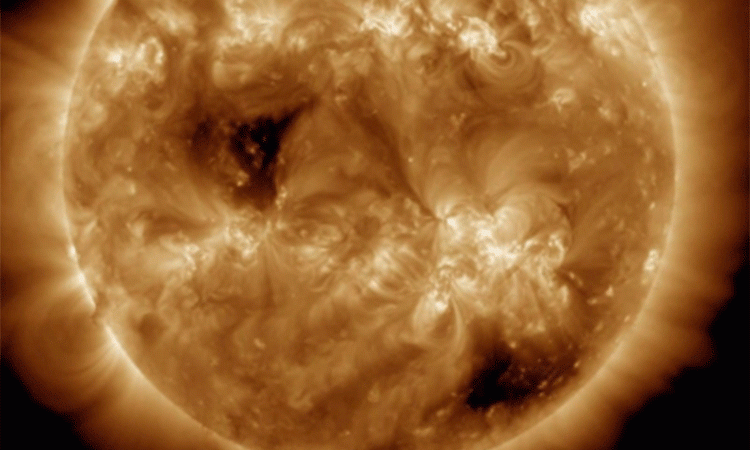A giant "hole", that is 20 times larger than the Earth, has appeared on the surface of the Sun, and could hurl a solar storm to Earth by Friday, the media reported.
Daniel Verscharen, Associate Professor of Space and Climate Physics at University College London, said the geomagnetic storm could be reaching Earth at a speed of about 1.8 million miles per hour, Business Insider reported.
According to the US National Oceanic and Atmospheric Administration (NOAA), a powerful geomagnetic storm causes severe disturbances to Earth's magnetic field, spewing solar material from coronal mass ejections (CME) - large expulsions of charged plasma from the Sun's upper atmosphere or the corona; and also reveal stunning auroras when they reach the Earth.
"The shape of this coronal hole is not particularly special. However, its location makes it very interesting," Verscharen was quoted as saying.
Also Read | Gulf of Mexico up for auction in a major blow to Joe Biden's climate change efforts
"I would expect some fast wind from that coronal hole to come to Earth around Friday night into Saturday morning of this week," he said.
This comes after NASA's Solar Dynamics Observatory, earlier this week, spotted a giant, black region of the sun -- called a coronal hole.
According to Mathew Owens, a professor of Space Physics at the University of Reading, such holes are more likely to appear, because the Sun is gearing up to a peak of activity, which happens about every 11 years.
"This one being at the equator means we're pretty much guaranteed to see some fast wind at Earth a couple of days after it rotates past the central meridian," he was quoted as saying.
However, he said: "I doubt it will result in too much excitement. Unless we just so happen to get an Earth-directed CME around the same time."


















